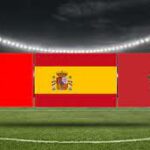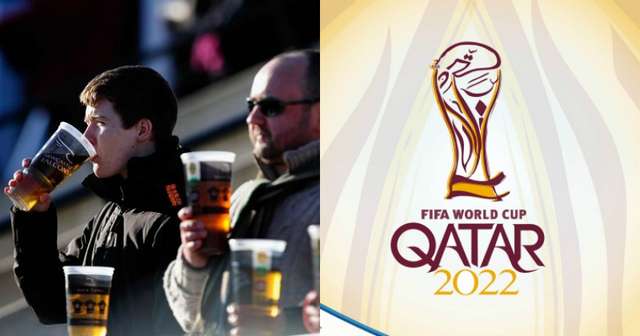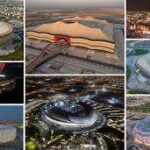
The Qatar World Cup is rapidly approaching in what seems destined to be the most controversial tournament ever held. Firstly there was all the bribery and corruption accusations surrounding the awarding of the competition to the middle east country in the first place. Then there is the contentious decision to play the games during the regular seasons of all the major European leagues, causing disruption to fixture planners and concern for the fitness and welfare of many of the world’s best players. Also concerns regarding emissions have also been raised.
Now a sports brand has added to the controversy stakes by designing toned-down kits for one of the competing nations, as a protest against the event being hosted in the country, in response to the Qatari record on human rights issues, in particular the loss of life suffered by migrant workers building the new stadiums, in seemingly appalling conditions.
Hummel’s three monochrome shirts
Leading manufacturer Hummel have created three separate kits for the Denmark national team after working closely with the Danish Football Association (DBU). The trio of kits will be an all-red home strip, all-white away strip, and an all-black third kit, each having a sponsor-less monochrome aesthetic design, to reduce the visibility of the shirts. The company stated that they believe that sport should bring people together, so when it does not, they felt eager to speak up and make a statement.
No wish for brand advertising
They have toned down all the details, which includes their own Hummel logo and the famous chevrons, because they say that they do not want their branding be visible during a tournament that has cost so many innocent people their lives, through the blatant greed of others. That they added, was despite loving the game and what it stands for, and the usual feeling of togetherness that it usually brings.
No political statement
Though FIFA’s World Cup rules prohibit political statements on team kits, the three Denmark shirt designs appear to comply within the stipulations, with no words or symbols that are an explicit statement. Instead the national team badge, the Hummel logo and the decorative white chevrons, which have been a feature of the Danish shirt since the 1980’s, are faded into the same single colour as the shirt.
Hummel have a long association with the Denmark team and have vowed to support them throughout the competition in whatever way they can, but they were keen to point out, that is not the same as supporting Qatar as a host nation.
Huge discrepancies over number of deaths
The mega-rich nation has been severely criticised over its labour practices and the number of migrant construction workers that have reportedly died ever since Qatar, somewhat surprisingly, won its bid to be the hosts. Some reports estimate as many as 6,500 labourers died over the time between then and now, although FIFA claim the figure is only 37 (which even if correct is still 37 too many).
Black shirts to be worn as a mark of respect
The Danes have already announced that they will play some games in there black third kit to draw attention to the workers who died, although that may be reliant upon their progress through the competition.
Committee dispute Hummel’s claims
The Qatar 2022 supreme committee, which is organising the country’s World Cup, disputed the claims made by Hummel and said that the shirt was “trivialising” its health and safety efforts; insisting that they have worked diligently alongside the Qatari government to ensure that the tournament delivers a lasting social legacy.
More conflict over emissions
There has also been concerns raised with regards to emission levels that the new stadiums are likely to produce, which organisers are claiming will be the lowest ever, but some experts are strongly disputing, creating even more conflict.
Due to the extreme heat and humidity likely to be experienced during the games, many of the newly built stadiums have incorporated air-conditioning which has led to further accusations of making misleading promises about the amount of carbon that will be produced across the event.
Report casts doubts over low-level claims
Carbon Market Watch, a non-profit advocacy group have produced a report which concluded that in actual fact the venues are likely to have emissions which are as much as eight times higher than those calculated in the initial outlines, which would make them the biggest contributor to the World Cup’s overall footprint.
Additionally, the compensating schemes that apparently will offset these emissions have a low level of environmental integrity.
Most compact ever World Cup
Organisers have been pointing out that this will be the most compact World Cup in history, with all venues within a 21 mile radius of the centre of the capital city Doha. This they say, eliminates the need for players, visitors and officials to take domestic flights and allows them to stay in the same accommodation throughout the tournament, which will slash travel emissions.
They are also linked by a metro and tram system, making it possible to watch more than one game in the same day for any fan wishing to do so. Of the eight venues, seven have been built from scratch, with futuristic designs and all with a focus on energy and water efficiency, it is claimed.
Credibility questioned
Policy analyst and the Carbon Watch reports author, Gilles Dufrasne said: “The carbon neutrality claim that is being made is simply not credible.” The counter argument being put to the organisers suggests that they have grossly underestimated the emissions from buildings, which at around 1.6 million tons are up to eight times higher than the figure predicted.
Three different venues for the Danes
Denmark will play their three group games at three different venues. Drawn in Group D they will take on Tunisia, France and Australia.
The first game will be at a the Education City Stadium, which has a 40,000 capacity and will kick off at 1pm, when the heat will be approaching its strongest. The ground will become the home of the national women’s team after the World Cup ends. It is nicknamed the “’the diamond in the desert” due to its distinctive shape, which is designed to glisten by day and glow at night.
The second game, four days later, is against the French, with a 4pm kick off, so also likely to be stifling hot, at Stadium 974, so called because remarkably it is built out of 974 shipping containers, and will actually be dismantled at the conclusion of the tournament.
The third and final game of the group is against Australia, at the Al Janoub Stadium, which also has a 40,000 capacity, with a design inspired by the sails of the dhow boats traditional to the country of Qatar, in a nod to the coastal city’s maritime heritage. It boasts a retractable roof and an innovative cooling system to ensure the ground can hold events all year round, even during the searing heat of the summer months. With a 3pm kick off it is highly likely it will be put to full use in this fixture.
Shirt message hopefully to gain extended exposure
The Danes are expected to make it through the group stages, so may well experience playing in one or two of the other stadiums too, if they do as well as expected. The deeper they go into the tournament the more exposure their shirts will receive and in turn, the greater the clarity of their intended message will become.
There certainly seems to be a good deal more controversy still to come, in a World Cup already like none before.





0 Comments